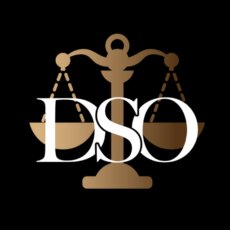Best Sexual Harassment Lawyers in Brazil
Share your needs with us, get contacted by law firms.
Free. Takes 2 min.
Or refine your search by selecting a city:
List of the best lawyers in Brazil
About Sexual Harassment Law in Brazil
In Brazil, sexual harassment is recognized as a crime and is addressed under both civil and criminal law. It primarily refers to unwanted sexual advances or conduct of a sexual nature that affects the dignity or creates an intimidating, hostile, or offensive environment for the victim. Sexual harassment is a significant issue within workplaces and other environments and has been subject to increased legal attention following Brazil's commitment to international conventions and internal legislative improvements.
Why You May Need a Lawyer
There are numerous scenarios where individuals may require legal assistance regarding sexual harassment in Brazil. Here are some common situations:
- Employment-related incidents where an employee faces harassment from colleagues or superiors.
- Victims of sexual harassment are seeking legal protection or restraining orders against the perpetrator.
- Individuals considering filing criminal charges against an offender.
- Need for guidance through internal workplace complaint processes.
- Legal representation and advice when negotiating settlements or seeking compensation.
Local Laws Overview
Brazil's legal framework regarding sexual harassment is primarily governed by the Penal Code and labor laws:
- Article 216-A of the Brazilian Penal Code: Defines sexual harassment as soliciting sexual favors under constraint, especially within a hierarchical or employment relationship.
- Employment Law: Employers are mandated to provide a safe working environment and can be held accountable for failing to prevent or address sexual harassment at the workplace.
- Civil Code: Allows victims to pursue civil actions seeking damages for the emotional and psychological impact of harassment.
Frequently Asked Questions
1. What constitutes sexual harassment under Brazilian law?
Under Brazilian law, sexual harassment is any form of unwanted sexual conduct that affects the dignity of an individual or creates an intimidating work environment, often involving a power imbalance.
2. Where can sexual harassment occur?
Sexual harassment can happen in various settings, including workplaces, schools, public transportation, or any setting where there is interaction between individuals.
3. How can I report sexual harassment in Brazil?
You can report sexual harassment to local police authorities or through your workplace's human resources department or designated ombudsperson.
4. What evidence is required to prove sexual harassment?
Evidence may include witness testimonies, electronic communications (like emails or messages), recorded conversations, and any documentation of the incidents in question.
5. Is there a statute of limitations for reporting sexual harassment?
Yes, there is a statute of limitations, which varies depending on the nature of the harassment and the legal action pursued. The sooner you report, the better.
6. Can men be victims of sexual harassment under Brazilian law?
Yes, Brazilian law recognizes that individuals of any gender can be victims of sexual harassment.
7. What are the penalties for committing sexual harassment?
The penalties can include fines, community service, and imprisonment, depending on the severity of the harassment and any prior offenses.
8. Can I take legal action if the harassment occurs outside my workplace?
Yes, sexual harassment is not limited to the workplace, and legal action can be taken regardless of where the incident occurs.
9. Is mediation a possible avenue for resolving sexual harassment cases in Brazil?
Yes, mediation can be an option to resolve situations amicably, though it requires willingness from both parties and is usually preferred in less severe cases.
10. How can a lawyer help me with a sexual harassment case?
A lawyer can provide legal advice, help gather evidence, represent you in court, navigate workplace procedures, and ensure your rights are protected throughout the process.
Additional Resources
Below are some resources that can provide further assistance and information on sexual harassment in Brazil:
- Local police stations and the Public Prosecutor's Office for reporting and legal proceedings.
- The Brazilian Bar Association (OAB) for legal representation and advice.
- Non-governmental organizations like the "Matria Institute" focusing on women's rights.
- Brazil's Ministry of Women, Family and Human Rights for governmental support and resources.
Next Steps
If you are experiencing sexual harassment and need legal assistance in Brazil, consider these steps:
- Document all incidents and gather any evidence available.
- Reach out to local authorities or your workplace's HR department to report the incident.
- Seek legal advice from a qualified attorney specializing in sexual harassment cases.
- Explore supportive resources to help navigate the emotional and legal challenges.
- Consider alternative dispute resolutions if appropriate, but prioritize your safety and well-being throughout the process.
Lawzana helps you find the best lawyers and law firms in Brazil through a curated and pre-screened list of qualified legal professionals. Our platform offers rankings and detailed profiles of attorneys and law firms, allowing you to compare based on practice areas, including Sexual Harassment, experience, and client feedback.
Each profile includes a description of the firm's areas of practice, client reviews, team members and partners, year of establishment, spoken languages, office locations, contact information, social media presence, and any published articles or resources. Most firms on our platform speak English and are experienced in both local and international legal matters.
Get a quote from top-rated law firms in Brazil — quickly, securely, and without unnecessary hassle.
Disclaimer:
The information provided on this page is for general informational purposes only and does not constitute legal advice. While we strive to ensure the accuracy and relevance of the content, legal information may change over time, and interpretations of the law can vary. You should always consult with a qualified legal professional for advice specific to your situation.
We disclaim all liability for actions taken or not taken based on the content of this page. If you believe any information is incorrect or outdated, please contact us, and we will review and update it where appropriate.
Browse sexual harassment law firms by city in Brazil
Refine your search by selecting a city.















